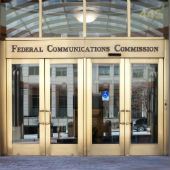Say hello to net neutrality
 The US Federal Communications Commission (FCC) has decided: it’s bowed down to the 4 million voices who’ve joined in the net neutrality battle, ruling that broadband should be treated as a public utility, like water flowing from our taps or electricity to our lights, free of blocking, throttling or paid prioritization for those willing to pay more, and also thereby subject to greater government regulation.
The US Federal Communications Commission (FCC) has decided: it’s bowed down to the 4 million voices who’ve joined in the net neutrality battle, ruling that broadband should be treated as a public utility, like water flowing from our taps or electricity to our lights, free of blocking, throttling or paid prioritization for those willing to pay more, and also thereby subject to greater government regulation.
As expected, the new regulations were passed on Thursday, with a vote of 3-2, with the Commission’s two Democratic appointees joining Chairman Tom Wheeler in voting yes.
The FCC’s two Republican-appointed members both voted no.
These are the three new rules, from the FCC’s release:
- No blocking: broadband providers may not block access to legal content, applications, services, or non-harmful devices.
- No throttling: broadband providers may not impair or degrade lawful internet traffic on the basis of content, applications, services, or non-harmful devices.
- No paid prioritization: broadband providers may not favor some lawful internet traffic over other lawful traffic in exchange for consideration of any kind – in other words, no “fast lanes”. This rule also bans internet service providers (ISPs) from prioritizing content and services of their affiliates.
Over the course of the last year, public interest in net neutrality has flooded the FCC.
President Obama has also chimed in, asking the FCC to adopt the three rules using Title II of the Communications Act as the legal underpinning and applying those utility rules both to home internet service and mobile broadband.
As the debate raged, many pegged Chairman Tom Wheeler as a yes-man for the telecommunications industry. That’s understandable, given that he had lobbied for them in the past.
Wheeler surprised everyone when he stood up for consumers, did not strangle innovation as critics feared, and wound up voting in favor of protecting net neutrality.
Why did Wheeler surprise everybody? In his statement about the new net neutrality rules, he said that the internet’s too vital for the broadband providers to be left in control, unregulated:
The internet is the most powerful and pervasive platform on the planet. It is simply too important to be left without rules and without a referee on the field. Think about it. The internet has replaced the functions of the telephone and the post office. The internet has redefined commerce, and as the outpouring from four million Americans has demonstrated, the internet is the ultimate vehicle for free expression. The internet is simply too important to allow broadband providers to be the ones making the rules.
This proposal has been described by one opponent as “a secret plan to regulate the internet.” Nonsense. This is no more a plan to regulate the internet than the First Amendment is a plan to regulate free speech. They both stand for the same concepts: openness, expression, and an absence of gate keepers telling people what they can do, where they can go, and what they can think.
The most controversial aspect of the decision is the reclassification of fixed and mobile broadband as a telecommunications service, with providers to be regulated as common carriers under Title II of the Communications Act.
This lumps ISPs in with wireline telephone service and mobile voice under the same type of regulatory regime.
The FCC is forbearing enforcement of many strict, utility-style rules that it could apply under Title II, including broadband rate regulation and state and local taxation.
That doesn’t mollify everybody.
Commissioner Michael O’Reilly, for one, criticised the way the FCC’s planning to chart Title II, calling it a “monumental and unlawful power grab”.
These are the main changes for broadband providers, courtesy of the BBC:
- Broadband will be reclassified as a common carrier, seeing it regulated like a utility. ISPs will have to provide consumers with equal quality access across the board.
- ISPs cannot speed up or block connections for a fee.
- ISPs cannot strike backdoor deals with content providers (paid prioritization).
- Interconnection deals will be regulated.
- The public can report unjustified slowdowns to the FCC on a case by case basis.
- The same rules will apply to mobile providers and fixed line providers.
- The FCC will not control pricing plans.
The US Telecommunications Industry Association is already set to wage war.
Scott Belcher, chief executive of the Telecommunications Industry Association, called the new rules “onerous” and said they represent an “over-reaction from the FCC.”
Not only will the industry take it to court; they’ll also keep up the battle in Congress, he told the BBC:
They will take legal action right away and they will continue to work in Congress to get legislation to address these rules.
Image of the FCC courtesy of Mark Van Scyoc / Shutterstock.com .
Article source: http://feedproxy.google.com/~r/nakedsecurity/~3/RkXpvS50idU/